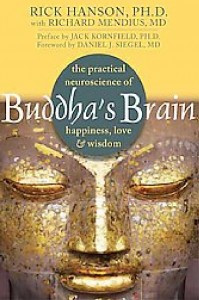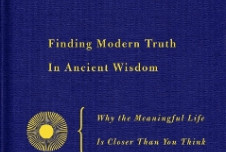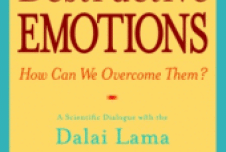
In Buddha's Brain, Rick Hanson and Richard Mendius provide a skillful blend of Buddhist philosophy and neuroscience, drawing on both to explore the roots of suffering and the path to emotional liberation.
Though they delve into Buddhist concepts as well as scientific research, Hanson and Mendius consistently write in plain English, understandable to the lay reader. They make clear how our bodies are geared to respond to the joys and setbacks that come our way. For instance, the neurotransmitter dopamine is linked to rewards, so levels can surge when things go our way. But if our expectations are not met, dopamine levels drop, causing unpleasant feelings or even cravings for positive experiences. What's more, the body produces numerous "pleasure chemicals"—endorphins, oxytocin, and norepinephrine, for example—in response to the good surprises in life. Between these biochemical punishments and rewards, we are bound to chase positive experiences, run from negative ones—and suffer along the way.
Practicing compassion for oneself and for others, they argue, is one of the most reliable ways to free ourselves from the inevitable hurts and disappointments of life. As they explain the biology behind standard meditation and relaxation techniques like deep breathing and guided imagery, the authors trace a route to emotional resilience and well-being.
Hanson and Mendius also offer dozens of research-based exercises meant to help us overcome stress, depression, anger, hatred, and the like. Exercises like these, they show, essentially change our brains; similarly, they explain how dopamine and other neurochemicals can be generated by thinking of those we love, or, as the authors encourage, to help us love even those we hate.
Ultimately, Buddha's Brain shows how many age-old Buddhist practices actually serve to strengthen the positive neurochemical systems that determine how we feel about life. Without trying to proselytize or make its readers become Buddhists, the authors make clear that it's within our power to achieve peace, tranquility, and control over our internal experiences. In doing so, Hanson and Mendius have given us a guide to improving our lives from the inside out, building the inner skills we need to improve our external circumstances and create loving relationships with others.





Comments
Your review has its merits. Perhaps you are
also familiar with the following review that
does not hold this book in as high a regard:
http://metapsychology.mentalhelp.net/poc/vie
w_doc.php?type=book&id=5443&cn=396
I always like to read two apparently conflicting
reviews before making the decision to use a
book in my work.
Thanks for your efforts.
Richard Matthews | 9:36 am, December 1, 2010 | Link
I just loved the book. It was the best thing I have ever read. It is truly life changing. I feel a different person. I encourage everyone I know to read it.
carole | 2:18 am, June 1, 2012 | Link